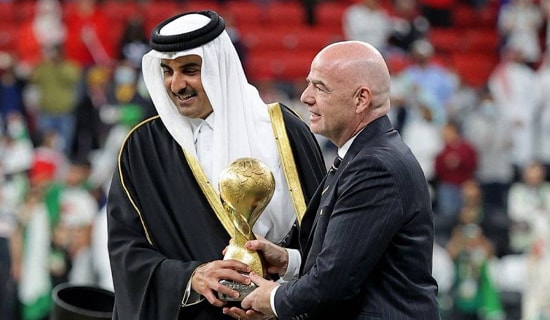Due to Russia's preoccupation with Ukraine, there have been articles appearing in the Russian media that Russian influence in Central Asia is in jeopardy, and is being challenged by the West and by Turkey. This is reflected in agreement is some Central Asian capitals to go along with financial sanctions on Russia. Since this can be considered indirect criticism of Putin's policy, articles such as the article by writer and historian Andrey Polonsky titled "Central Asia Remains Ours". The West is distant and Russia is close. The Soviet experience, with its mistakes is still considered a liberating experience from colonialism and an engine of economic progress. Moreover, with Russia, the Central Asian leaders do not need to fear a "color revolution" such as occurred in Ukraine and Georgia in the name of greater democracy.
Polonsky's article follows below: [1]

Russia-Central-Asia Summit in October 2022 (Source: Kremlin.ru)
In mid-October, the US Congressional Research Center issued a report on cooperation with Kazakhstan. The report’s conclusions are simple and predictable. The Americans objective is to fight, fight and fight the Russian presence once more in all spheres, but primarily in the realm of economics, current politics, culture, and ideology. To this end, Americans are willing not only to fund, foster, and nurture their own groups of influencers in government, business, and, most importantly, in the artistic and academic community, but also to promote the most radical anti-Russian sentiments among nationalist intellectuals, especially in the country’s south.
Right now, the Americans’ basic task is to harm Moscow to the maximum, and then, judging by how it goes, they will sort things out accordingly. We know full well how successfully they deal with such cases we know very well from the examples of Afghanistan, Iraq, and Libya. But Kazakhstan case is a different thing. It is connected with Russia by thousands of ‘threads,’ and even Washington understands this. Thus, they are striving to act with redoubled vigor.
In principle, the US and its allies are implementing the same task throughout Central Asia: to oust Russia from the region is their wet dream. And, it would seem, by playing on the selfishness and injured ego of the local power elites, as well as on the conflicts between the Central Asian powers themselves, the Americans can achieve certain preferences.
So, it would’ve seemed that by playing on the selfishness and wounded ego of the local power elites, as well as on the conflicts between the Central Asian powers, the Americans can achieve determined preferences.
And yet, I believe that the capabilities of our geopolitical opponents remain limited.
In Astana, Alma-Ata, Tashkent, Bishkek, Samarkand, Dushanbe and even in Khorog and Ashkhabad we are still "our guys," maybe not the most beloved, but understandable and close, while in contrast "they," people of the West, promising benefits, attractive and courteous, are, undoubtedly, remote, not always comprehensible and dangerous for local elites. No one in Asia knows what kind of colored revolution they may yet start and how it will turn out.
But they know for sure that the Russians won’t futilely stir up trouble, provided they are not taunted excessively. This is still our Asia. And it is fundamentally important for the situation to remain unaltered.
The Central Asian states themselves, within their current borders, are the product of Soviet history. A special social world created in Central Asia, the unique character of which is keenly felt whenever one crosses the borders of the former Soviet Union, entering the region from the direction of the traditional East, was solely the result of the Soviet era transformations. Upon crossing the border, we immediately find ourselves in a very bizarrely arranged environment which went through "Soviet age," and experienced modernization, which is difficult to fit into any standard template familiar to the Anglo-Saxons.
The pattern by which Westerners have been accustomed to scrutinize the East has always been crude and basic. Once an arrogant "Orientalism" was in, now it’s postcolonial discourse (especially in its left-liberal rendition, that is). "Colonialism", "decolonization", "post-colonial revival" are the trendy topics of the early 21st century that remain extremely relevant to the world agenda, including the US and Europe. The ideological bets of the great Central Asian discourse are being made on them (our opponents are ready to play the same card with greater or lesser success in the entire Post-Soviet space).
However, the fact is that Russian history poorly complies with this narrative, which, I’m not exaggerating, infuriates the enemy. They go out of their way to prove that Russia is a colonial power just like Britain, France, and others, but even worse. They understand that if they will be able to impose a false retrospective narrative on the local elites, the break with Russia will become a matter of political strategy. But this is on the surface. The Central Asian issue itself goes much deeper.
Starting from the end of the 18th century onward, for almost a century, Central Asia was an area of fierce conflict between the British and Russian empires. The British were panic-stricken by the emergence of Russians on the borders of British India, in the Pamirs, Tibet, and the Himalayas.
Their resistance was fierce but in vain. Khiva [Khoresm], Bukhara, Samarkand, and Kokand [Uzbek khanates in Central Asia] one by one fell under the rule of the "White Tsar." The Russians’ development of Central Asia, the construction of new cities and railroads, and then the Soviet transformations in the Asian republics were a powerful challenge to the British colonial system. And, most significantly, this is exactly how Russians were perceived in the East, the Russians, the Soviets were bringing liberation from colonial dependence.
Nowadays people try to forget or ignore this issue, but for India, the Arab East and other countries, even for Turkey, the October Revolution had a connotative meaning. It, as Soviet Orientalists liked to put it, "awakened the peoples." ...
And the memory that for decades Russia was bringing liberation and hope, rather than enslavement, is still alive in Central and South Asia, despite the blow that was dealt to it by the troubles of Soviet history, policies of our adversaries, the collapse of the USSR, the Afghan war, and Islamic radicalism. Russians are not colonizers; they do not look down on the people of the East. The latter intuition is still the main obstacle to Western influence in the region.
The capabilities of the USSR/Russia in the East were well understood by our enemies during the "classic" Cold War era. And in spite of the intellectual disease that suddenly befell upon them, they still understand it in some detail. Hence the "studies," numerous seminars, grant projects and everything else we can imagine from our 1990s that are financed by them.
The only task of such pseudoscientific and pseudo-cultural activity (I want to use the slang word "commotion") is to demonstrate that the Russian presence was just colonization, that is, they strive to eliminate and distort the historical memory of the twentieth century.
But the facts are many, and they resist, [to the Western agenda]
Be that as it may, we must not take a defensive stance.
It is necessary to be proactive, to make clear statements, to value our own agents of influence, and to remember the achievements of the past. The main thing is not to foolishly play along with the enemy, considering the current, partly unpredictable, emigration of the "fifth column" to Tashkent, Astana and Bishkek, and in our own attitude towards Asian [labour] migrants, who have remained in Russia (because their every testimony resonates acutely in Asia), in the usage of "soft power," as well as in specific political decisions.
You can't make mistakes. Central Asian Post-Soviet states are still crucially important to us, especially considering that we talk about the turn from Eurocentrism to a multipolar world. So far we have strong positions based on real historical foundations. We must not let them be destroyed.
[1] Vz.ru, October 27,2022.








